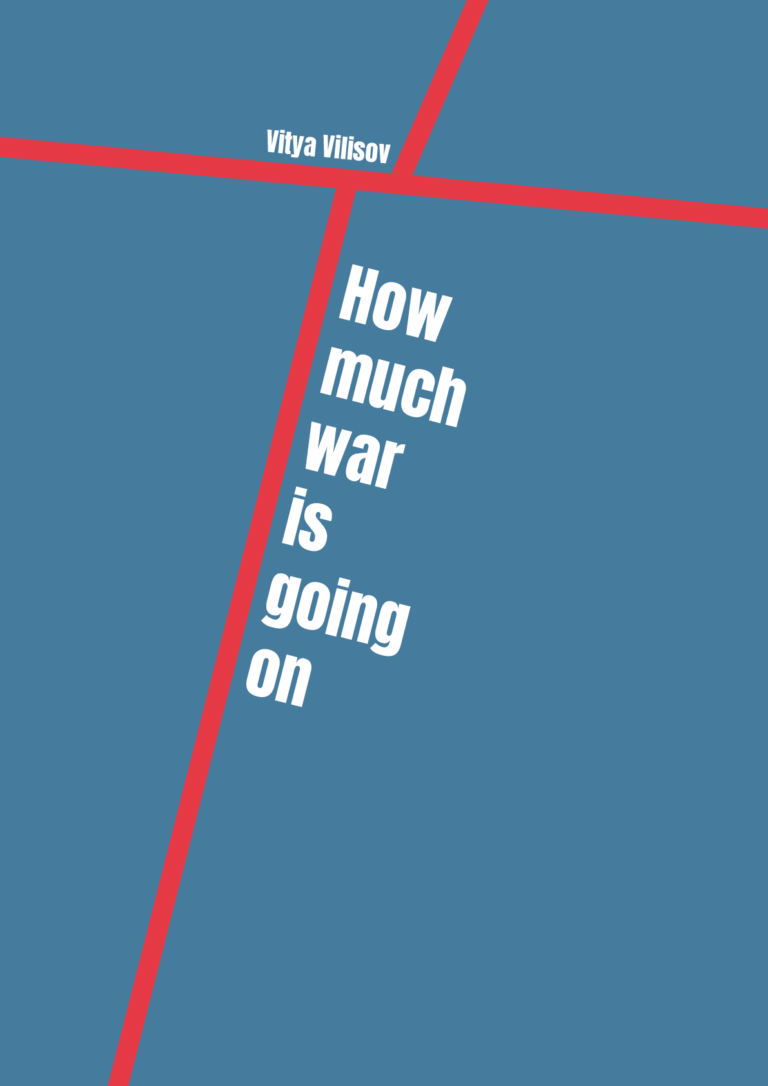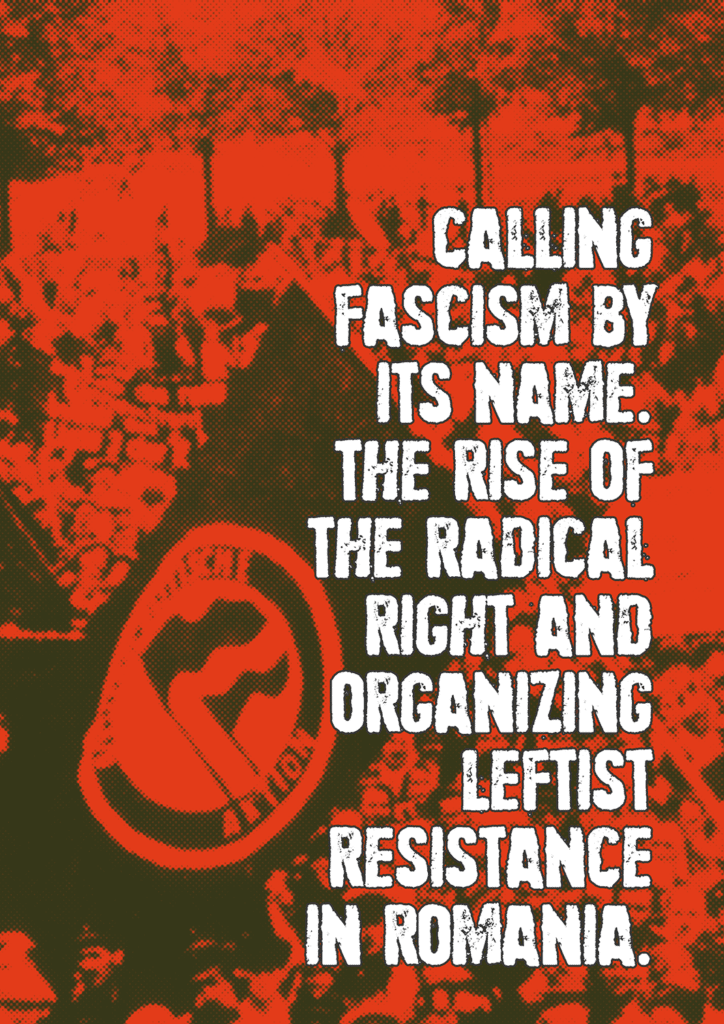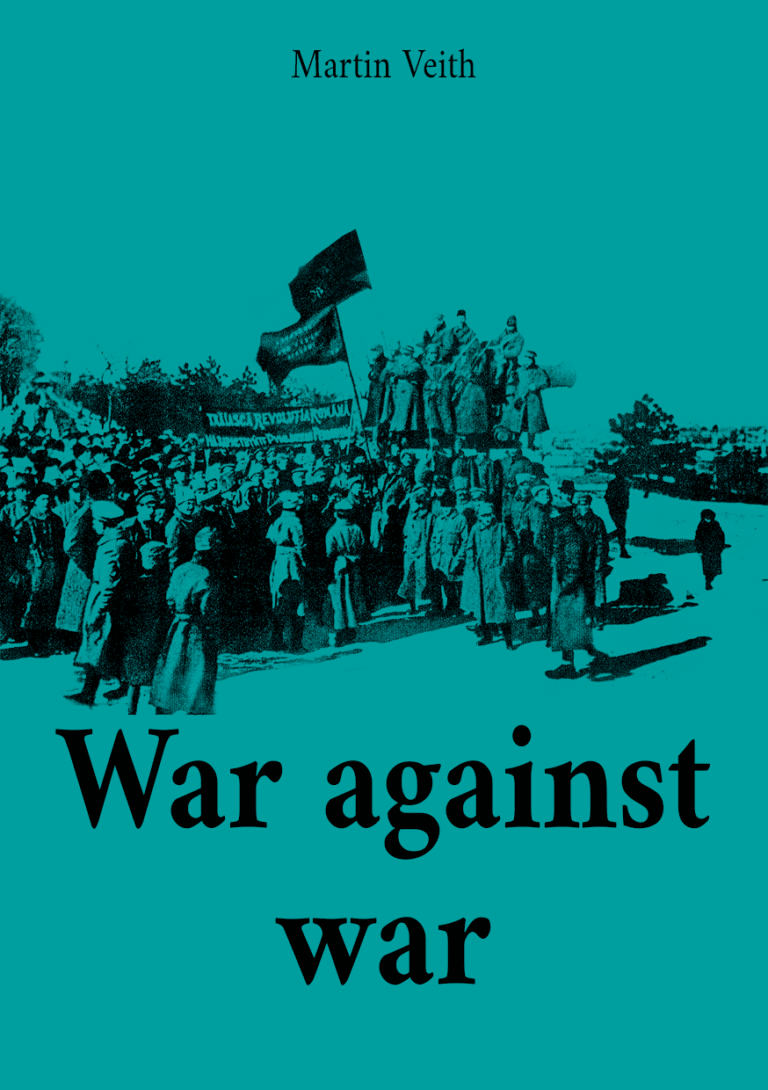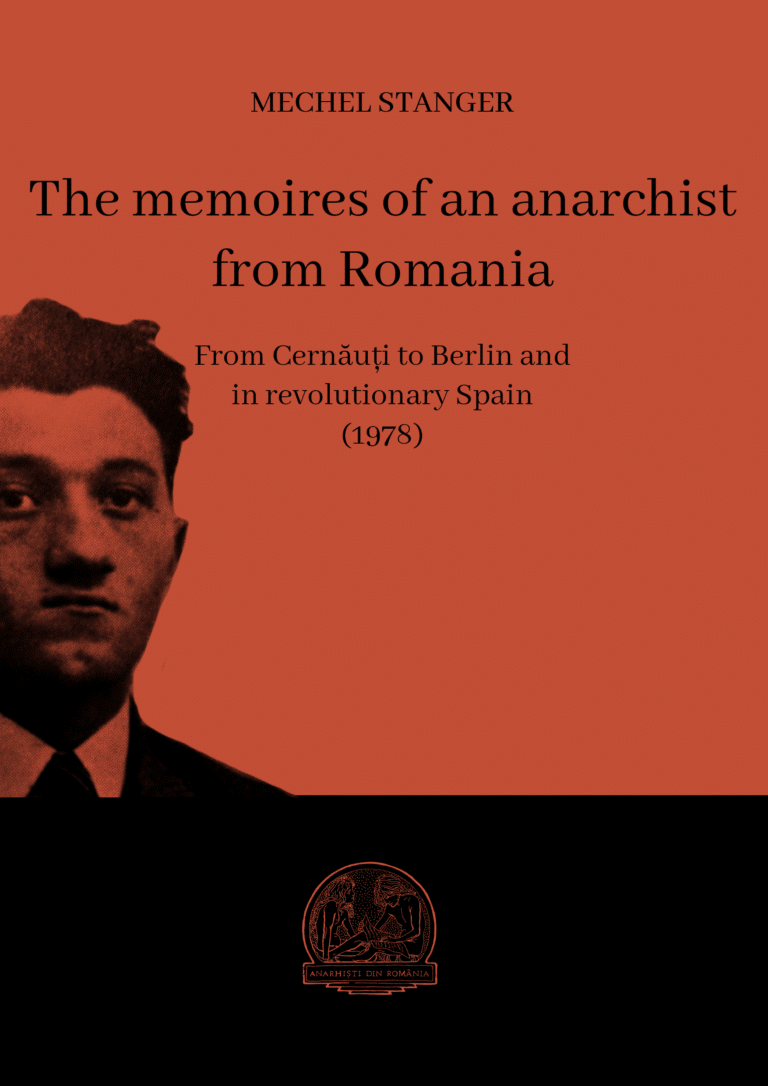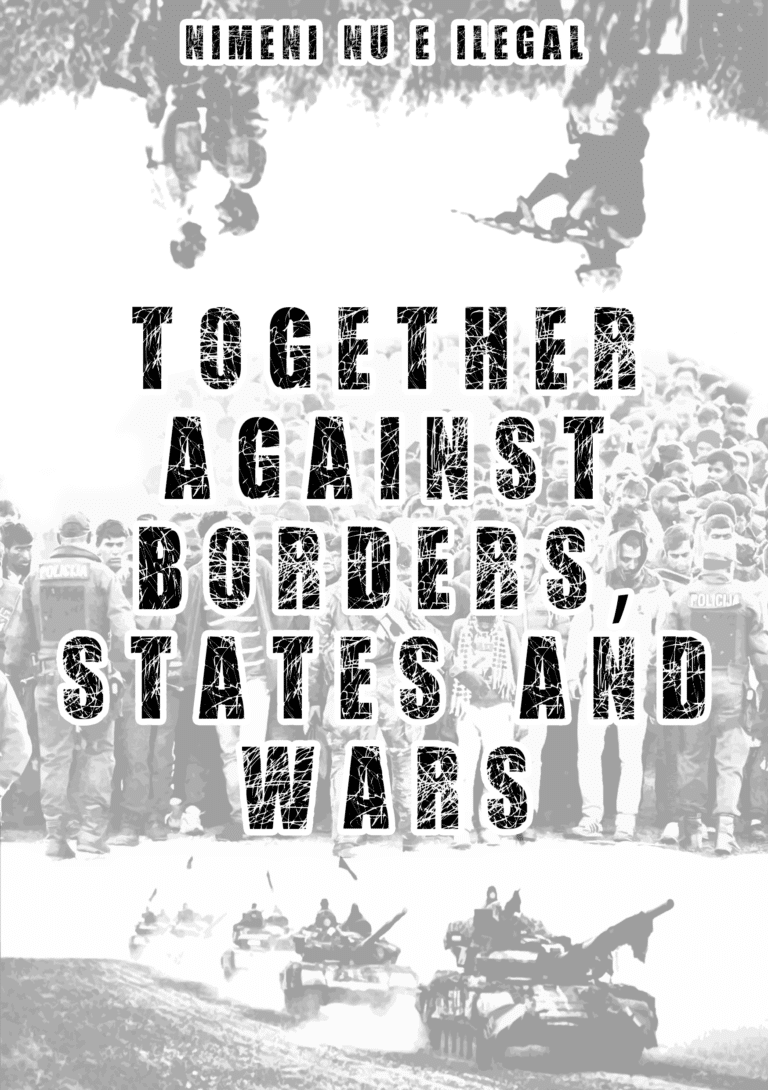Courrier des Balkans: You recently organized a seminar about fascism in Romania, Ukraine, and Russia. Do you see fascism on the rise in Romania today?
Adina Marincea: What we are witnessing now, since AUR [Alianṭa pentru Unitatea Românilor, Alliance for Romanian Unity] entered Parliament in 2020, is a historical moment: this is the first party that revives the interwar fascist legacy – more precisely the Legionary Movement which was a violent fascist movement – and has managed to establish itself as a parliamentary party. Before 2020, there were other grassroots movements claiming this legacy or using fascist symbolism and rituals, with annual commemorations of former fascist leaders for example. So it’s not like this came out of nowhere, they were always there. But until 2020, they never had access to mainstream power. Sure, there was the far right PRM [Partidul Romậnia Mare, the Greater Romania Party] before, but it did not claim a historical legacy tied to interwar fascism.
CdB: How does this translate into political reality?
Adina: Today, AUR is fully rehabilitating fascist leaders. They are basically rewriting history and clearing the names of war criminals, people involved in the Holocaust, people from the legionary movement. They do this partly by consolidating the “cult of the prison saints”— those who were convicted by the socialist state for opposing communism, in order to portray them as heroes, although a large number of these “prison saints” of the anti-communist resistance had been very active in the legionary movement: that means they were radical antisemites and ultranationalists who took part in violent actions.
You have for instance people like Sorin Lavric, who is a senator for AUR: his interventions in the Parliament consist of rehabilitating these fascist figures. He now has a podcast in which every episode is dedicated to the anticommunist resistance, most of which consisted of legionaries and antisemites. This comes at a time when there is a lot of white washing of figures like Ion Antonescu, who was a war criminal. So they really are reviving these fascist ideas which are now more than ever permeating society, and I see a real danger in this rise of fascism.
I also feel there is still reluctance within society to call these people “fascists.” They are called “populists,” “right wingers,” “nationalists,” or “unionists,” and they themselves insist on calling themselves “conservatives.” But they’re not conservatives, they are clearly neo-fascists, they are connected with many of the fascist groups, they copy their rituals, symbols, they talk about fascism – either overtly or in a coded way. At the same time, they are scared to be labeled as such. For example, for his wedding, George Simion imitated that of legionary leader Corneliu Zelea Codreanu in 1925. At the same time, he publicly denied this and portrayed himself as the victim and target of denigration by the mass-media. He gaslighted everyone. But they are fascists so let’s call them by their name.
Veda Popovici: Calling them by their name is only the first step. The second step, a very important one for the Romanian context, is to look at the underbelly of the radical right and neo-fascization. Because it’s this underbelly that made possible what we are witnessing today with the rise of AUR.
CdB: What do you mean by “underbelly”?
Veda: What I mean is to look at the second tier guys, the ones that make up this whole universe of soft right-wingers, more like crypto-fascists, conservatives, patriots, and right-wing intellectuals of all kinds. These guys have very problematic collaborations, alliances, and admirations throughout their careers, they’re very well accommodated in universities, established cultural milieus, and social movements: and this is actually a far bigger issue. Sure, there’s the avant-garde, the worst dudes, and it’s very important to look at them, but it’s also critical from a tactical point of view to understand and acknowledge what’s behind them: liberal, moderate, mainstream, hegemonic networks of people who have power, who don’t identify as radical right-wingers but support them.
George Simion is actually a good example in this sense: before he became the leader of AUR, he was accommodated by the Rezist (anti-corruption) movement. This movement was right-leaning but not radical right, with a background of entanglement with the former Roșia Montană movement and all these “Uniți Salvăm” (United We Save) social networks who eventually created USR (Uniunea Salvați România, Save Romania Union) later on. These networks didn’t see themselves as right-wing but they were accommodating the self-described right-wing groups who were more palatable for the liberal taste, such as unionists like “2012 Action” (Acțiunea 2012), “Bessarabia Romanian Land” (Basarabia pământ românesc), or guys coming from Ultras groups like George Simion. It’s this kind of social dynamics and type of organizing that have actually accommodated and empowered fascism, allowing it to rise, as we can see in the present.
Adina: Even the Romanian Academic Society (SAR), a rather liberal NGO and think-tank under the patronage of Alina Mungiu-Pippidi, promoted George Simion when he was clearly a unionist within Bessarabia Romanian Land and other similar movements. Nicușor Dan [leader of USR] at some point, and many people from the civil society, from the liberal NGO industry, saw Simion as harmless, even though he was clearly a nationalist and a unionist. Also I think that George Simion has this quality of adapting to different environments and seeming like a nice guy, but his nationalism was always there.
The mainstream parties – PSD [Partidul Social Democrat, Social Democratic Party], PNL [Partidul Naţional Liberal, National Liberal Party], UDMR [Uniunea Democrată Maghiară din România, Democratic Alliance of Hungarians in Romania], etc. – are also to blame because they have normalized nationalist, xenophobic discourses and Holocaust denial by politicians from their top ranks. This paved the way just like Berlusconi did in Italy 15 years ago. He was not himself neo-fascist but he was apologetic of Mussolini and invited neo-fascists into the government.
CdB: And today Italy has a neo-fascist government.
Veda: This is the way “liberal,” “moderate,” and self-described “neutral” political individuals and groups consider right-wing elements to be harmless. It is part of the liberal imaginary and part of how liberalism works. Liberals have always considered themselves to have some sort of righteousness or a sort of pure legitimacy to represent society. At the same time, they look down at radical elements of the left or of the right: they ridicule them, undermine them, never take them seriously, and this is what historically happened with nazism. Liberal circles with financial, cultural, and political power officially did not taken them seriously, while somewhat accommodating them. And, simply put, this is because, at the end of the day, liberal material conditions – or the way capitalism works – are perfectly compatible with a right-wing environment. As long as they’re not the target, the ideas and practices of the radical right are not so bad for liberals. This is why – amongst others – mainstream academic circles are highly responsible for today’s rise of fascism in Romania.
CdB: How are the academic circles responsible?
Veda: In the Romanian context, mainstream academics and intellectuals have yet to deconstruct the legacy of their forebears’ right-wing allegiances throughout the 20th century. To this day, generations of intellectuals are not held accountable and have not taken responsibility for such collaboration and complicity. Mainstream academic circles today still idolize people like Mircea Eliade, Emil Cioran, Constantin Noica, and Lucian Blaga, despite their engagement with fascist parties and ideologies, ranging from membership to conceptual legitimization of a fascist worldview.
Adina: From this perspective, I’d like to underline the obvious continuity of nationalist politics through the different regimes in Romania, starting with the “Greater Romania” era, going through the 1960s – since Ceaușescu’s communist regime was also a nationalist regime – and up to today.
CdB: And yet, everyone seemed surprised when AUR entered Parliament in 2020.
Veda: It was only a surprise for privileged people that don’t really pay attention to right-wing groups, because these don’t threaten them. Within the radical left, we have been saying for 20 years that fascism will return and that we have to prepare. In turn, the liberals would respond with: “You anarchists are like that, you are always seeing fascists everywhere.”
Adina: And a lot of left-wing activists were also not really aware of these attempts, they were saying we should only focus on the mainstream parties, PSD, PNL, that the real problem is there, with the erosion of the social state. The thing is, these people who are now in AUR acted far from our eyes, they didn’t have access to mainstream media, which is captured by state and private interests. They used social media a lot to target groups and demographics who are not us, so we didn’t see them much. They were also campaigning a lot in rural areas, which again are far from our eyes. So they were building up their base but it was under the radar.
CdB: Have fascist ideas influenced the PNL-PSD government policies?
Veda: The fact that AUR is there, in the parliament, definitely gives a boost to the right-wing policies of PNL-PSD. But all the mainstream parties in the West and in the Balkans are leaning towards the right and so are the Romanian ones. It’s a matter of the historical moment, we’re living a disastrous economic, social, environmental crisis and the governing elites don’t really care, so what can they do but create conflicts and assign blame to some random groups like the gays, the refugees… But how are these people to blame for anything?
Adina: Besides the fact that mainstream parties like PSD and PNL are actually both very nationalist and conservative, these tendencies were already there. The more progressive people have left USR, and the few who are still there represent hardcore neoliberal ideas. AUR is encouraging radical-right tendencies in other parties as well, because they see that there is an electorate for them. This is obvious in recently proposed legislative projects, like the one against so-called “gender ideology.” It was UDMR who brought this project to the table, because UDMR is highly “Orbanized” – it has become a satellite of Fidesz, Viktor Orbán’s party. And UDMR has been a junior partner in government since 2020, first with PNL and USR, and now with PSD and PNL.
Another thing that I see happening is that, because of AUR and because the mainstream parties see there is an electorate for these nationalist ideas, many new parties start appearing, parties formed by traditional politicians who are undergoing political “reconfiguration.” We see more nationalist populist parties appearing, that are established by mainstream politicians who just switch between parties and now see in this a way to make political gains. This is how the far right permeates society via parliamentary politics.
CdB: There was a protest organized against inflation on October 2. The flier that a lot of people received in their mailbox was not signed by any organization, but it was organized by AUR.
Adina: They are instrumentalizing left-wing topics, exactly like the interwar fascists did. They pick up on people’s economic frustrations, usually a topic of the left. The issue here might be that we do not have a strong left in Romania – similarly to many other countries where social-democratic parties have become middle-class and where the poorer people are not represented. When the electric bill prices exploded, PSD and AUR were the only parties that seemed to care for people’s concerns. While capitalizing on people’s frustrations, AUR is not bringing any kind of solution. We should emphasize here that AUR is not a party of the people, it’s a party that actually supports inequalities and considers them natural, part of the order of things. They are profoundly anti-egalitarian, as they themselves acknowledge.
CdB: And what about the unions? Where are they?
Veda: The unions were destructured in the late 1990s when the whole labor movement was repressed. What survived took a quite different turn and adopted a strategy of working together with governments. Over the years, the left has pursued various types of alliances with unions, some with good results. However, it’s very hard when we don’t have much legitimation, given our lack of great numbers and great resources. So yes, AUR can take advantage of the social-economic crisis and the left has little echo in society, without the access to the infrastructure and resources right-wing parties have.
CdB: And how do you build an infrastructure?
Veda: You either do it very slowly, over a long period of time, which we have been doing. Or you get some big flow of funding for setting up financial support systems, buying property, creating radio stations, TV stations… In the end, if we’re talking about quick radical change, the only thing you can hope for, if you don’t have the infrastructure, is a random historical opportunity. Then, if you’re at the right place at the right moment, your vision can reverberate in society. But until then, what we have is quite medium, slow and fragmented mobilization.
CdB: So now, when we say “the left,” we are talking about informal groups?
Veda: Yes, informal groups, collectives, projects… It’s not a unitary thing. There are the anarchist networks, the socialists, some groups organized around the housing justice movement, the feminist movement, anarcho-queer mobilization…
Adina: We should say “the lefts.”
CdB: How come nothing arrived on the mainstream political spectrum, since there is no one representing the left in Parliament? The place is free and open.
Veda: Maybe this is a question you should ask the socialists. Me, I’m an anarchist, I don’t want to create a party.
Adina: This is the thing: since in Romania the anti-communist rhetoric has become hegemonic in all aspects of public life, it makes it very hard to have any leftist group acceptable. People talk about USR as the “left” just because at some point they supported more progressive topics like LGBTQIA+ rights… If you have any kind of social policy, people consider it “communist” and it gets discredited or shut down. Anti-communism goes hand in hand with a neoliberal discourse, making it very hard for any kind of left-wing movement to gain traction and legitimacy. This is a result of the mixture between the strong anti-communist reaction to our hardcore national-communist past that has made left-wing ideas unpalatable, and the post-1989 neoliberal agenda that has been consolidated strategically with the help of this anti-communism.
I think we are still in a process of capacity building. Some on the left criticize what we have built, saying it’s “too intellectual” or “too cultural.” but at the same time, it’s a process to consolidate the movement, bring in more people, and de-stigmatize the left. Of course you need mobilization, but what mobilization can you have with a few dozen active people, which is “the left” in Bucharest?
I feel often that people in Western countries, when they look at what’s happening – or what’s not happening – in Romania, pass a little bit of judgment. But I think we are in a different phase.
Veda: For me, a gigantic social movement with a party as one of its heads is a model I would be down for, I could be part of, but it’s not what I work for. The model I work for is creating infrastructure, the stable kind, and an organizational culture that is able to reproduce itself regardless of numbers, that can be kept by 10 people and scaled to 10000. And above all, what interests me is continuity, that there’s little to no break. I feel that in times of harshest crisis – economic bankruptcy, fall of government, war – it is precisely continuity that actually keeps resistance afloat.
So I’m truly not frustrated that our left is medium. I’m proud that the left in the Romanian context is very diverse, covers a lot of topics, is very dynamic —things are changing rapidly and for the better. There’s an amazing threshold of change in generations happening right now. A new generation is entering our collectives and circles, they really want to do things, they get involved, they get attached to the cause and to the people there, this is all crucial stuff. For me personally, if I “just” keep doing what I’m already doing, I’m very ok and proud of myself and my communities facing the rise of fascism.
Adina: To come back to why there’s no leftist party, it’s also because of the electoral law that made the threshold very high, among the highest in Europe. You need a lot of signatures – 200.000 – in order to run in elections. The medium left cannot get all these signatures, a legal requirement which poses a challenge even for the established parties or for candidates with more resources. There are frequent allegations of signature forgery. In addition, you need to have a lot of money and resources, probably also support from some institutions or actors with economic interests, because you need money for campaigning so that people know you. And where to get that money but from some businessmen? Then we would be already compromised or dependent on them, which is a bad way to start a leftist political party.
We have the spectacular recent example of the Demos party, which was a self-declared left-wing party, we saw there people who were willing to make some compromises and others who were not, and it was bound to fail. I also wouldn’t personally invest my energy in building a party because I don’t think electoral politics is the future I would want for the left. At the same time, pragmatically speaking, I know it’s important to have a legislative influence. But we can pressure politicians and parties and influence policies in other ways that are more suitable for us, where we don’t have to make that many compromises.
CdB: What are other ways to influence policies?
Veda: For example the local housing justice movement is really anticapitalist, including individuals identifying as socialists and anarchists, and it has always included this tactic of negotiating with the local administration and pushing for changes in legislation. We’ve had medium victories, and the little stuff that we’ve achieved we then took to the communities we’re organizing with and said: “Look what we’ve done,” which creates legitimacy. You build trust and relationships on that, and on those some more and so on, this is a strategy.
Ideally, this generates steady commitments from the people involved, which is crucial. You may not have 10000 people, but you have 50 people who are going to do radical political work until they fucking die. That’s powerful. Not 10000 people who you may mobilize today but tomorrow you can’t find them, or they have something better to do or, the worst, you find out they have joined AUR. That’s scary.
CdB: Can you elaborate a bit what you achieved with the housing movement?
Veda: From the perspective of policies, we’ve managed, for example, to change the criteria for getting social housing, so the criteria are a bit better, in Cluj and partly in Bucharest, at the city hall level. We managed to include social and public housing in the Recovery and Resilience Plan for Romania (through which Romania is to get 31 billion euros in European funds) and that is because of our work. If we hadn’t been there for many years, nobody would have said at that table that public housing should be part of the Plan. Generally, the housing movement in Romania managed to put housing on the agenda of the parties and local administration. People are asking for this and we were there to put pressure on the mediumer and the bigger administrations. We have also pushed to put public social housing on the agenda of other social actors like unions – this is not work you do overnight, it takes time and patience. Now, their approach is that labor and housing are intertwined, and when they sit at the table to negotiate with the big guys in government, housing is brought up.
CdB: These are concrete results. What about the environment? In Zagreb, Croatia, in Belgrade and Novi Sad, Serbia, the environment has been a good vector for social mobilization. Why not in Romania? There’s no green party in Romania?
Adina: The Green Party was run until recently by Florin Călinescu, who is a Christian nationalist conservative right-winger rambling against so-called “neo-marxism” and whose other party colleagues were supporters of the openly neofascist Călin Georgescu – who was also promoted by AUR’s leader George Simion. I am skeptical of their capacity for “internal reform.”
Veda: I think it crashed though.
CdB: So the Green Party in Romania was not on the left.
Veda: Currently there are some groups- the movement will surely grow in the future. Within our movements, the environmental issue has been mostly integrated. For example, in the housing movement, we’ve been addressing it mostly by pointing at injustice related to environmental racism. Also cities in Eastern Europe are some of the most overcrowded in Europe. Bucharest is among them and a lot of concrete environmental issues in the city come from that.
However, the key issue to keep in mind is that all environmental justice initiatives have to start almost from scratch. And this is because of two issues: one is that, when they were developing in the early 2010s, environmentalist approaches on the left were targeted by state repression. And then, secondly, the two strong environmentalist movements that managed to develop in the 2010s have spectacularly collapsed: the Roșia Montană movement, and the forest protection movement.
CdB: Can you elaborate?
Veda: Well, my experience is that the Roșia Montană movement collapsed because the so-called “moderate” people accommodated nationalists and right-wingers. At the same time, the radical left was slowly thrown out of the movement for precisely pointing out this issue. All of this built up into big internal tensions that eventually resulted in the collapse of the movement. And the forest protection movement – which reached its peak around the same time as Roșia Montană – collapsed in a similar vein, from being infiltrated by right-wing elements. At the time, in our collectives, the stories circulating were of brutal repression that discouraged many, including the few leftists involved. When you think about it, it makes perfect sense, since timber is such a big money business. And when people organize to go there to protect the forest, they’re just in the middle of fucking nowhere and it’s very easy to intimidate and repress them violently. So now, it’s only the big NGOs who are doing the work because they are the only groups who can benefit from the level of protection needed for this. And even they, activists from Greenpeace, have been beaten up. Journalists too.
Adina: I think that now, the environmental movement in Romania is not yet politicized. Except for medium, younger groups.
Also, this reminds me of how the anarchist movement took a very severe blow when the 2008 anti-NATO protest was violently repressed by the state. For me, this is something to keep in mind when we talk about our big ambitions. When you are a medium movement easy to destructure and destroy, the main thing you should be concerned with is to protect the movement and not expose yourself to unnecessary risks. Because when the movement is destroyed, it takes a long time to rebuild.
CbD: Can you say more about what happened then?
Veda: In 2008, there was a NATO summit in Bucharest, and so there was an anti-NATO gathering organized by Romanian anarcho-punk networks with comrades from other countries. Just the usual anti-Nato protest activities that were happening everywhere when there was a NATO summit. What happened is very well documented: our comrades rented a big industrial hall at Timpuri Noi (in Bucharest) where everyone could stay overnight, and the plan was to have open activities protesting the summit. On the morning of April 2, the day before the summit, anti-terrorist units broke into the hall with flashlights, anti-terrorist gear, and guns, and they literally beat everyone, over 50 people, up. Several were seriously injured with broken ribs and legs. After, they arrested them and held them in custody for several hours. In addition to this, later it turned out that the group had been under surveillance for months and even infiltrated by the Secret Service.
The whole affair was so traumatic and choking, that comrades part of the scene back then got really scared. And they were mostly around 20 years old, making zines, stickers, punk music… After this moment, a lot of them gave up any kind of activism, they were very traumatized, many suffered from depression, some people decided to do totally different things, and the networks were destructured.
The anarcho-punk and the anarcho-feminist movement was pretty strong and rich until that point, and things partly collapsed with this heavy event of repression. And we rebuilt from that movement. Biblioteca Alternativă was created afterwards to continue that. We thought we need to go underground because this is hardcore shit, so we said, let’s do cultural projects.
Adina: The authorities totally went overboard back then because they wanted to kiss NATO’s ass. They had just joined in 2004, so they wanted to prove that Romania was a good NATO boy. These authoritarian repressive tendencies can be seen as a continuation of the former dictatorial regime because at least some parts of the system have not changed much, such as the Intelligence Services.
CdB: My last question is about emigration and the left. In Romania, and Eastern Europe, there has been a constant flow of people leaving, young people get depressed about the situation here and they go to Berlin, London, etc. Did you experience this in your activist circles?
Veda: Oh yes… We’ve had many people over the years either leave to find something they project as being better in Berlin or London. Or people not sure whether to leave or stay, so they tend to not commit to political organizing. I saw this, for example, in the housing movement: you organize with communities but there is an issue of continuity and sustainability because people leave. Most such communities consist of working-class people. They are poor, they live in overcrowded apartments, so the young people leave for Italy, the UK, or Germany to work and send money back home so that they somehow eventually manage to buy a home. That’s the way the urban working class in Bucharest solves the overcrowding issue: they go abroad to work. In the housing movement, at least, you have this problem: the most important organizers we had in the movement in Bucharest, who came from communities of people who had been evicted from their homes, have left to work in Western countries. But this seems to have changed recently.
Adina: Yes, and sometimes some people come back. Few of them, but it happens, and when they come back, they have useful experience.
Veda: It’s been so much better for the last few years, you feel it. Not only people are less likely to leave, but they are less likely to consider leaving, which is even more important, because they are not in that limbo where they don’t know if they want to commit to a certain political project or not. Now, fewer of them consider leaving, they are here and say, “This is my life.”
***
Adina Marincea became involved in activism around 2014. Previously she had taken part in the protests against the Anti-Counterfeiting Trade Agreement (ACTA) in 2012 and the Roșia Montană protests in 2013. She is a researcher currently studying far-right radicalization and periodically publishes her analyses and online investigations in both mainstream media and on left-wing, feminist, and anarchist platforms. As an activist, Adina is part of several anti-authoritarian collectives and has been involved in feminist, anti-racist, anti-fascist organizing, as well as in the housing justice movement.
Veda Popovici became involved in activism in 2011 from an anti-capitalist, anti-authoritarian, decolonial, and communitarian position. Her political work has developed with various autonomous, anarchist, and feminist initiatives such as Claca social center, Macaz cooperative and autonomous collective,the Gazette of Political Art, Dysnomia community, or the Common Front for Housing Rights. As an organizer, she has been involved in mass protests (such as the anti-austerity protests of 2012, the Roșia Montană movement in 2013) as well as in community building in the feminist, anarchist, housing justice, and anti-racist movements. As an engaged theorist, she has written on decolonial thought, anti-fascism, intersectional feminism, political art, and transformative justice. She is currently mostly dedicated to organizing for housing justice, radical queer politics, and regional and international solidarity.
